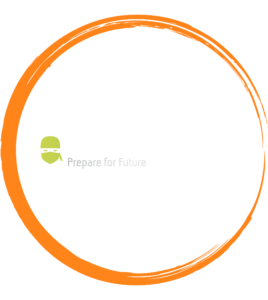From Dorm Room to Boardroom: How Young Entrepreneurs Are Hacking Growth in 2024
In 2024, the startup landscape is being reshaped by a new breed of young entrepreneurs. Armed with fresh ideas, a fearless mindset, and digital tools that previous generations only dreamed of, these innovators are proving that age is just a number when it comes to achieving success.
From college dorm rooms to boardrooms of multi-million-dollar companies, young entrepreneurs are hacking growth like never before. But how are they doing it? Let’s dive into the unique strategies and mindsets that are helping them turn their ideas into thriving businesses in record time.
1. Leveraging AI for Rapid Scalability
One of the biggest drivers of growth for young entrepreneurs in 2024 is their early adoption of AI tools. Today’s startups aren’t just using AI for automation—they’re leveraging it for everything from customer acquisition to personalized marketing and even product development.
- AI-Powered Marketing: Tools like Jasper and ChatGPT are enabling startups to create high-quality content at scale, generating marketing materials in minutes. No need for expensive agencies when AI can handle tasks like SEO, ad copy, and blog writing with near-human finesse.
- Customer Insights in Real-Time: Using AI-driven analytics platforms like Google Analytics 4 (GA4), young founders are able to understand customer behavior instantly, adjusting their marketing strategies on the fly for maximum growth. These insights give them an edge over competitors still using traditional methods.
Case Study: Ben Francis, Gymshark
Ben Francis started Gymshark from his bedroom at 19, using AI-driven tools for content and influencer marketing to rapidly scale. By 2023, Gymshark reached a valuation of over $1.45 billion, all while keeping operations lean with AI insights into customer behavior and demand forecasting.
By automating time-consuming tasks, young entrepreneurs free up valuable time to focus on innovation and strategic growth.
2. Viral Social Media Marketing
Social media has always been a powerful tool for growth, but young entrepreneurs have taken it to new heights. Armed with platforms like TikTok, Instagram, and YouTube, they’re creating viral content that drives massive engagement—and often, without spending a dime on advertising.
- Micro-Influencer Collaborations: Young founders are tapping into micro-influencers, who may not have millions of followers but do have highly engaged communities. These partnerships are cost-effective and lead to authentic brand growth.
- User-Generated Content (UGC): Encouraging users to create content around their products not only builds social proof but also generates a stream of organic marketing. Think giveaways, challenges, and hashtags—these tactics keep audiences talking about their brands.
Case Study: Olivia Rodrigo’s “Sour” Campaign
While Olivia Rodrigo is known for her music, her album’s viral success in 2021 was largely due to leveraging TikTok. Young marketers on her team created content that went viral on TikTok and led to 1.4 billion streams on Spotify within just a few months. This shows the raw power of viral social media strategies in building global recognition.
For Gen Z entrepreneurs, social media isn’t just a marketing channel—it’s a growth engine that can turn a side hustle into a full-blown business overnight.
3. Bootstrapping with Minimal Resources
Contrary to the notion that you need a ton of funding to start a business, many young entrepreneurs are proving that bootstrapping is alive and well. They’re launching businesses with minimal resources, often from their dorm rooms, thanks to the accessibility of digital tools.
- Lean Startup Model: Many of these founders are adopting a lean startup mentality, focusing on launching a Minimum Viable Product (MVP) and iterating based on customer feedback. This allows them to test ideas quickly without burning through capital.
- Freelance Economy: Platforms like Fiverr and Upwork allow them to outsource tasks without hiring full-time employees. By building a network of freelancers, they can scale operations quickly without the overhead of traditional staffing.
Case Study: David Karp, Tumblr
David Karp built Tumblr as a bootstrapped side project in his mother’s apartment at 20 years old. Without external funding or a large team, Karp scaled Tumblr to over 100 million users before selling the company to Yahoo! for $1.1 billion in 2013.
These methods not only keep costs low but allow founders to remain nimble, pivoting quickly when necessary.
4. The Power of Community and Networking
In 2024, community-building has become one of the most effective growth hacks for young entrepreneurs. Rather than focusing solely on customer acquisition, they’re creating loyal communities around their brands that fuel organic growth.
- Online Communities: Platforms like Discord and Reddit are being used to build engaged communities where customers can interact with each other and the brand. These spaces allow startups to gather valuable feedback, foster loyalty, and turn customers into brand advocates.
- Mentorship and Networking: Young entrepreneurs are also using platforms like LinkedIn to connect with industry leaders and fellow founders. By actively seeking mentorship and advice, they’re able to avoid common mistakes and accelerate their growth trajectory.
Case Study: Melanie Perkins, Canva
Melanie Perkins leveraged community feedback to build and refine Canva, a graphic design tool. Through word-of-mouth and strong community ties, Canva scaled from a dorm-room idea to a $40 billion business by 2023. Her focus on creating a product that solved real pain points for her audience drove massive community-based growth.
By building a strong community, they’re creating an army of loyal supporters who not only buy their products but advocate for them.
5. Global Thinking from Day One
Unlike previous generations who might have focused on local or national markets, today’s young entrepreneurs are thinking globally from day one. The internet has made it easier than ever to reach international audiences, and they’re taking full advantage.
- E-commerce Platforms: Tools like Shopify and WooCommerce allow them to sell products globally with ease. With built-in tools for handling international shipping and taxes, young founders can expand their reach without additional complexity.
- Digital Nomad Lifestyle: Many are also embracing a digital nomad lifestyle, working remotely from anywhere in the world. This global mindset helps them tap into new markets and networks that can help accelerate growth.
Case Study: Eric Yuan, Zoom
While not starting from a dorm room, Eric Yuan’s growth strategy for Zoom was distinctly global. During the pandemic, Zoom’s user base skyrocketed from 10 million daily users to 300 million in 2020. Yuan’s global-thinking approach enabled him to capitalize on remote work trends, turning Zoom into a household name worldwide.
By approaching business with a global vision, these founders are creating opportunities far beyond the borders of their home countries.
Conclusion
From AI-driven marketing to bootstrapping with minimal resources, young entrepreneurs in 2024 are rewriting the rules of business growth. Their ability to leverage technology, build strong communities, and think globally is helping them turn their dorm room dreams into boardroom realities—faster than ever before.
If you’re an aspiring entrepreneur, take notes: the strategies used by this new generation of founders offer a roadmap for success in today’s fast-paced business world.




